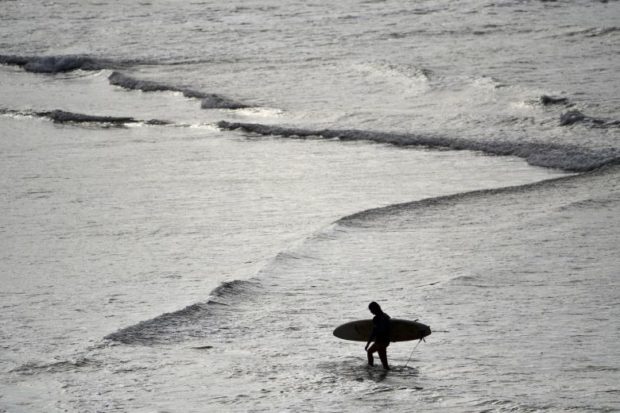SYDNEY — Australia’s world-beating run of economic growth has been built on waves of migrants who have brought in much-needed skills, youth and vibrancy, but all that has come to a sudden stop.
The coronavirus pandemic is expected to cause the biggest population decline in the country’s recorded history.
The number of temporary visa holders this year – including workers, students and tourists – plunged by 310,000 from Jan 1 to the middle of this month.
Many more of these workers are set to leave over the coming months but they will not be replaced, with a ban on foreigners entering due to continue for at least another three to four months.
In recent decades, Australia has depended on a growing influx of migrant workers to address labour shortages in areas ranging from nursing to engineering.
These workers have also have been credited with helping Australia enjoy 28 consecutive years of growth, longer than any other advanced economy.
The influx has also kept up Australia’s steady population growth.
Its population of about 25.5 million grew by almost 1.2 million people between 2016 and last year, with migration responsible for more than 60 per cent of this expansion and the remainder due to the birth rate. Analysts say the sudden stop to migration will cause a heavy hit to the economy.
It will force government spending to increase due to an aging population while revenue will fall due to a lower proportion of taxpaying working-age citizens.
And a halt to temporary arrivals such as international students will exert a toll on both universities and the property rental market.
Mr Abul Rizvi, a former senior Australian immigration official, said the country is likely to experience overall negative migration this year and the next as many of the temporary visitors still in the country return home.
“Australia has not experienced successive years of negative net migration since the early 1930s,” he wrote in an article on the East Asia Forum website.
“The combination of very low net migration and declining fertility will accelerate population aging in the 2020s, with severe consequences for economic growth and government budgets.”
Some analysts have suggested ways to fill the migrant gap while the travel bans continue – such as giving all temporary visa holders still in Australia a path to migration, or allowing greater flows between Australia and New Zealand, which both have relatively small numbers of virus infections.
The authorities could also allow visitors to enter, but subject them to strict quarantine.
Journalist and political commentator George Megalogenis said Australia’s economy was due to contract by 6.7 per cent this year, but would struggle to grow at the predicted 6.1 per cent rate next year if it remains isolated from the rest of the world.
“Even a single year without migration could unleash an economic and social catastrophe, as country towns see their populations decline in absolute terms and the growth rates of capital cities are reduced to near zero,” he wrote in The Sydney Morning Herald.
Dr Brendan Murphy, Australia’s chief medical officer, told a Parliamentary committee this week that international arrivals are likely to be barred for at least another three to four months.
But Prime Minister Scott Morrison said Australia was looking at allowing travel to and from New Zealand – a move that could boost tourism and potentially assist with skills or labour shortages.
The federal government, meanwhile, has called for those on temporary visas who cannot support themselves – such as foreign students or short-term workers – to return home.
However, several analysts have urged the government to instead allow these temporary visitors the option of staying on as longer-term migrants.
Dr Shane Geha, an urban planning expert from the University of New South Wales, said the government should provide some welfare support to those on temporary visas to allow them to stay and work in sectors such as mining and agriculture. “Visa workers are fulfilling a very important role in our economy and I think we should have a special category for them in terms of allowing them to stay here,” he told Business Insider.
